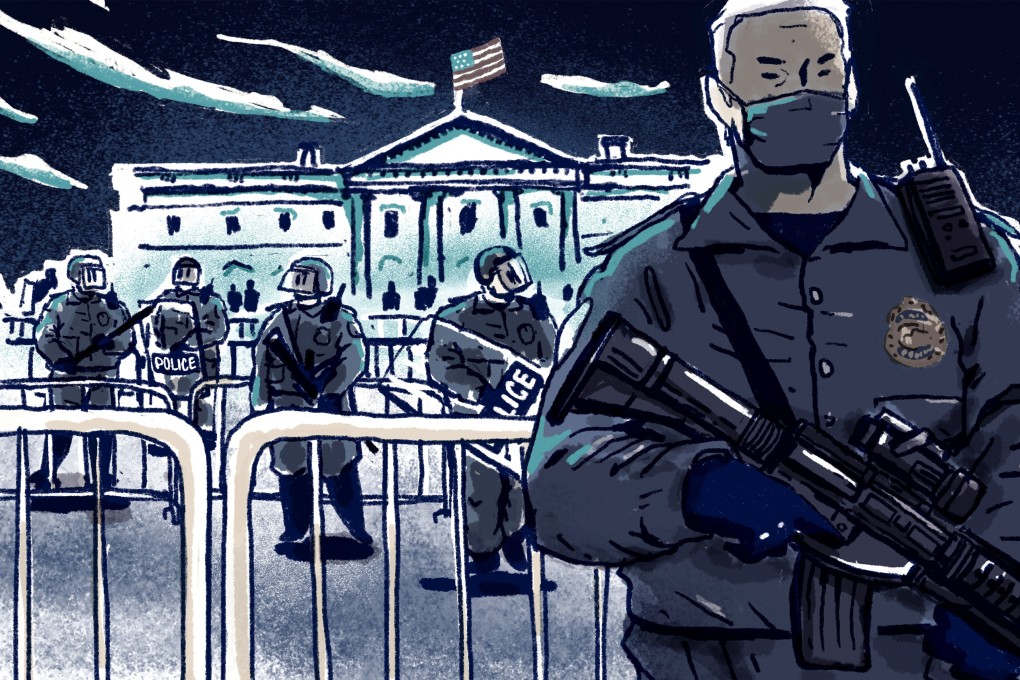Joe Biden inauguration: Donald Trump trashes tradition as tense Washington prepares for new president to swear in
- Crowds banned from the oath-taking ceremony and thousands of National Guard in place after warnings of more violence
- Traditional meeting between incoming and outgoing presidents will not take place, nor will Donald Trump attend inauguration

Follow the main events of the US presidential inauguration day with the SCMP’s live blog from 10am EST/11pm HKT on January 20.
The tumultuous events in the US, from the coronavirus pandemic to threats of violence from supporters of outgoing president Donald Trump, have set the stage for a muted Inauguration Day. Many traditional aspects of the transfer of power have been adapted to fit the unprecedented circumstances.
The FBI has warned of plans for armed protests in Washington and all 50 US state capitols on and leading up to Inauguration Day. Unprecedented security is in place ahead of the event, typically marked by huge crowds, fanfare, and celebration of a peaceful transfer of power.

04:58
US presidential inaugurations throughout history: a look back as Joe Biden is set to take his oath
A total of 25,000 National Guards from around the country have been cleared for duty in Washington and will be vetted by federal law enforcement over concerns of inside attacks, the Associated Press reported.
Thousands of troops have already been at work for days in the US capital in an effort to prevent the failures of preparation that experts say left law enforcement overwhelmed on January 6.